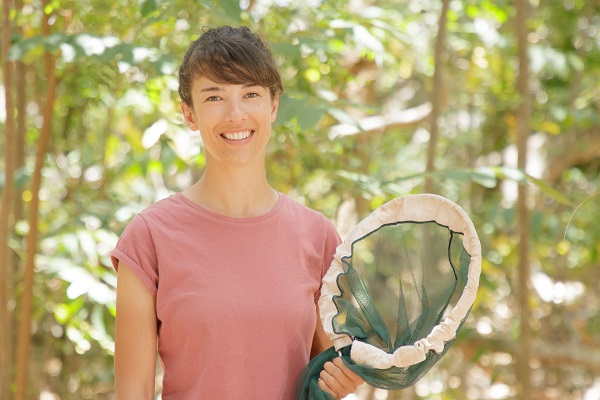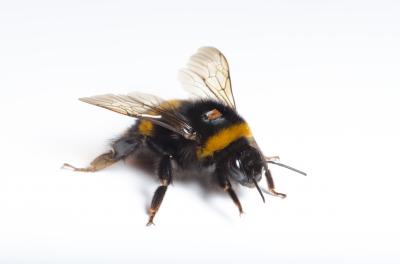Brainy bumblebees: but does learning always pay off?

Dr Lisa Evans of Plant and Food Research will head into New Zealand’s forests to explore variation in learning ability in colonies of wild bumblebees. This work will further our understanding of how the environment and learning ability affects the ability of bees to successfully reproduce.
Published 8 November 2018
Most animals are capable of learning but being a ‘good learner’ is not always beneficial. Learning requires time and energy that could otherwise be spent gathering food. For example, bumblebees are foragers that learn to use floral traits, such as colour, to predict food quality and quantity. An environment where floral diversity is high and floral traits change over time might favour faster learners. In contrast, being a good learner would be less advantageous for bees in a stable environment with low floral diversity. However, this is yet to be observed in the wild.

A bumble bee (Bombus terrestris) with a RFID tag attached to its back. The RFID tag allows them to keep track of the bee's foraging activity and how well they are supporting their colony. (Photo: Brian Cutting)
With a new Marsden Fund Fast-Start grant, Dr Lisa Evans from Plant and Food Research and a team of international researchers will compare the learning capability of wild bumblebees living in these two different kinds of floral environment. They will test the advantage of being a good learner by transplanting colonies of bees from each of the two environments into the other and measuring any changes in their reproductive success.
This research will provide insights into the evolutionary and environmental factors that influence variation in learning abilities between individuals of a single species.
